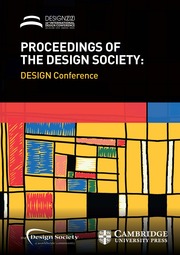Crossref Citations
This article has been cited by the following publications. This list is generated based on data provided by Crossref.
Pakiman, Anahita
and
Garcke, Jochen
2022.
Graph Modeling in Computer Assisted Automotive Development.
p.
203.
Gupta, Chetna
Fernandez-Crehuet, Jose Maria
and
Gupta, Varun
2022.
Measuring Impact of Cloud Computing and Knowledge Management in Software Development and Innovation.
Systems,
Vol. 10,
Issue. 5,
p.
151.
Pakiman, Anahita
Garcke, Jochen
and
Schumacher, Axel
2023.
Knowledge discovery assistants for crash simulations with graph algorithms and energy absorption features.
Applied Intelligence,
Vol. 53,
Issue. 16,
p.
19217.
Sharma, Ruchi
and
Lakhera, Girish
2024.
Knowledge Management Using Cloud Computing in Higher Educational Institutions.
p.
956.

